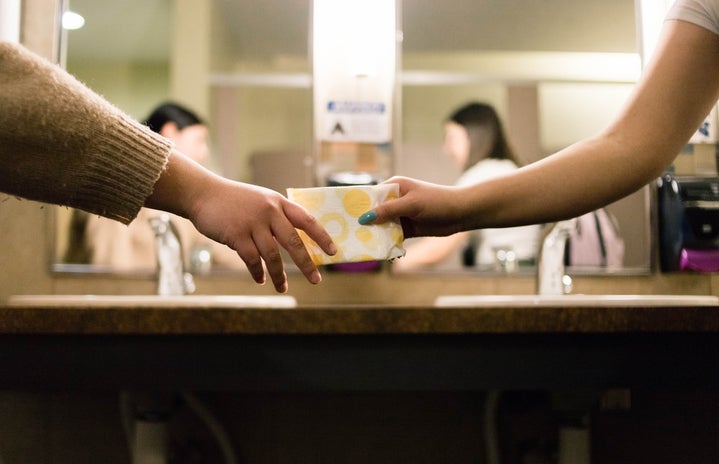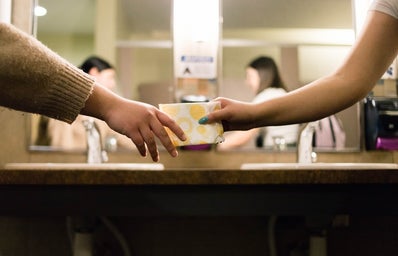Imagine having little to no access to menstruation products — having to revert to using rags, toilet paper, paper towels, napkins, etc. just to “get by” on your period.
Nearly 22 million U.S. women are living in poverty and cannot afford proper menstrual hygiene products, an issue otherwise known as period poverty. (health.harvard.edu)
“Period poverty describes the struggle many low-income women and girls face while trying to afford menstrual products. The term also refers to the increased economic vulnerability women and girls face due the financial burden posed by menstrual supplies.”
unfpa.org
The affordability of menstruation products has been a hot topic of conversation for years, oftentimes, the root of the issue boils down to one thing: paying too much for a basic necessity.
A study conducted in 2019 and published in “Obstetrics & Gynecology,” reported that 64% of women claimed that they were “unable to afford needed menstrual hygiene supplies during the previous year. Approximately one-fifth of women (21%) experienced this monthly.”
64% is nearly two-thirds of the female population.
Two. Thirds.
Let’s Talk about it
Embarrassment can play a huge role in women being able to advocate for themselves to find a solution to the problem. And if we can’t talk about the issue, how do we expect to put an end to it?
First step: ending the stigma around periods.
According to Sph.umich.edu, “Stigma associates menstruation with uncleanliness and disgust instead of recognizing it as biologically healthy and normal. The shame associated with periods prevents people from talking about it, which in turn averts dialogues about access to products, the tampon tax, and even the ingredients in our pads and tampons.”
An open, uninhibited conversation about periods can allow us to address the issue at large to meet the needs of women who cannot afford basic menstruation products.
That’s what the Student Pad Project is here to do at Penn State.
The Student Pad Project
Started in 2019, the Student Pad Project (SPP) is a group of students with the goal of improving menstrual health/equity for women in developing nations. The organization is fully funded by donations through fundraisers and drives, with a website that is partnered with a non-profit organization in India.
Each year in India, twenty-three million girls are forced to drop out of school or work due to a lack of proper sanitary products. Implementations in schools such as free product distributions resulted in an astounding 32.66% decrease in the withdrawal rate of girls.
“As a first-generation Indian-American, I have made several trips to India during my life. During some of these trips, I witnessed the severe health disparities that exist for women in rural Indian villages,” Philip Ratnasamy, SPP president, said.
“I learned how many Indian women are forced to use dirty rags while menstruating and are often ostracized from their families and entire communities during their menstrual cycle. Seeing this glaring global health disparity motivated me to help start the Student Pad Project at Penn State,” Ratnasamy said. (onwardstate.com)
“In the past, the SPP has worked to achieve this goal by fundraising to establish self-sufficient sanitary pad production sites in rural villages of developing nations. The women in the receiving region can then use the site to produce and sell their own sanitary napkins.”
After just three months of operation, the sanitary pad-making sites develop into self-sustaining businesses, resulting in economic opportunities for women of that region to make income. (sites.psu.edu/padproject)
With this project underway, women in developing countries will feel comfortable leaving their homes to go to work or school while menstruating, which in turn, provides career opportunities and further economic development.
Access to period products for women across the board is a basic necessity. Normalizing the topic and spreading awareness is a major step in working toward menstrual equity, justice and integrity. One pad at a time.
To donate or learn more, visit https://sites.psu.edu/padproject/donate/.


